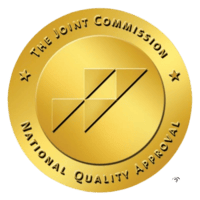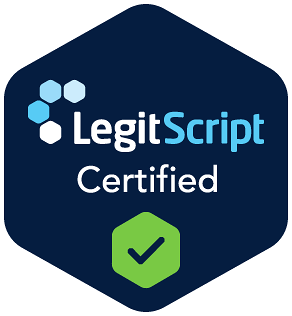The workplace can be difficult to navigate, especially for those dealing with addiction recovery. We must understand how laws like the Americans with Disabilities Act (ADA) and the Family and Medical Leave Act (FMLA) protect employees in recovery. These laws prevent discrimination and ensure that employees receive reasonable accommodations and job-protected leave. However, we must also consider if employers need to change their attitudes towards addiction recovery. It is crucial to understand that addiction, in many contexts, is legally recognized as a disability, thereby granting those in recovery certain protections under the law. This recognition, while fundamental, is only the first step towards combating the substantial issues of stigma and recovery challenges faced by individuals battling addiction.
Understanding Addiction as a Disability
Stigma Reduction is a critical component in this conversation. The perception of addiction as a moral failing rather than a health issue is widespread, hindering the recovery process and potentially exacerbating the problem. By legally acknowledging addiction as a disability, we initiate a shift in societal attitudes, fostering an environment conducive to recovery rather than condemnation. However, the path to recovery is fraught with challenges. These range from the physical and psychological toll of addiction itself to the complexities of dealing with life and work while in recovery. Understanding addiction as a disability underlines the severity of these recovery challenges and can lead to more robust support systems and accommodations in the workplace.
In essence, the legal recognition of addiction as a disability is not just about rights—it’s about fostering understanding, reducing stigma, and addressing the multifaceted challenges of recovery.
Overview of the ADA’s Protections
The Americans with Disabilities Act (ADA) is a critical safeguard, ensuring the rights of individuals battling addiction in the employment sector. It is essential to dissect the protections it offers and the rights it bestows upon those in recovery to fully comprehend its magnitude. This examination will highlight the ADA’s role in fostering an inclusive work environment for individuals in recovery. The ADA aims to protect the rights of employees while ensuring workplace safety. It includes important protections for individuals in addiction recovery, preventing discrimination against those dealing with addiction, which is often considered a disability.
The ADA’s protections are a socio-political tool designed to foster inclusivity and equality. These protections are multifaceted, from prohibiting unfair treatment to ensuring reasonable accommodations. However, the ADA’s intricate structure can sometimes obscure its core purpose—safeguarding the rights of individuals with disabilities, including those in addiction recovery. It is not just about implementing legal protections but about challenging our perceptions and fostering a culture of acceptance. For those in recovery, the ADA’s protections are not just rights; they are lifelines.
Rights Under ADA
As per the ADA Compliance requirements, employers are prohibited from engaging in disability discrimination, including denying reasonable accommodations needed to effectively manage an employee’s recovery process. This prohibition extends to all facets of employment, from hiring to termination, and also covers the treatment of employees in their current roles. Fundamentally, the ADA ensures that individuals in recovery are not penalized for their condition but are given the necessary support to perform their duties effectively.
However, it’s noteworthy that the ADA protections are not absolute. They require that the addiction be classified as a ‘disability,’ a term that implies substantial limitations on one or more major life activities. Additionally, these rights are only preserved if the individual is not currently engaging in the illegal use of drugs. Collectively, these provisions affirm the ADA’s commitment to inclusivity and equity while highlighting the delicate balance it seeks between protecting individuals in recovery and maintaining workplace safety and efficiency.
How FMLA Supports Addiction Recovery
The Family and Medical Leave Act (FMLA) is pivotal in supporting employees in addiction recovery. Yet, its provisions often need to be more understood and utilized. Employees maneuvering the rehabilitation process by understanding the fundamental rights and protections offered by FMLA can leverage this federal law to safeguard their employment. Understanding the complexities of the FMLA can be challenging, especially when considering its role in supporting those recovering from addiction. However, comprehending the key provisions of this act is vital, as they offer essential protection for employees in recovery.
Two critical elements are ‘Leave Duration’ and ‘Employee Eligibility.’ Leave Duration, under FMLA, entitles eligible employees to take up to 12 weeks of unpaid, job-protected leave within a 12-month period for specific family and medical reasons, including substance abuse treatment. This provision is a lifeline for those seeking help for addiction, providing them the time they need to focus on recovery without the fear of losing their employment.
FMLA and Rehabilitation Rights
Traversing the landscape of addiction recovery can be challenging. Yet, the Family and Medical Leave Act (FMLA) provisions serve as a beacon of hope, offering critical support for rehabilitation efforts. This legislation guarantees up to 12 weeks of unpaid leave for eligible employees dealing with serious health conditions, including substance use disorders, without the fear of losing their jobs.
With this provision, FMLA bridges the gap between employment and rehabilitation funding. It provides a lifeline, facilitating access to treatment while safeguarding one’s livelihood. This nexus is profoundly significant, as it addresses the financial anxiety that may deter individuals from seeking help, thereby creating a conducive environment for recovery. Further, acting as recovery support, FMLA ensures the reinstatement of employees to their original or equivalent positions upon completion of treatment.
Workplace Accommodations for Recovered Addicts
Exploring the professional landscape after addiction recovery requires examining workplace accommodations available to protect the rights and support the well-being of individuals in this situation. Job retention strategies and supportive workplace cultures are paramount in facilitating a smooth return to the workforce. Job retention strategies such as flexible work schedules, role modifications, and continued support for therapy or counseling appointments can considerably impact the recovered individual’s ability to maintain employment.
Creating supportive workplace cultures involves educating employees about addiction as a disease, promoting empathetic understanding, and destigmatizing addiction recovery. A supportive culture also includes mechanisms for peer support and robust policies against discrimination based on addiction history. Such measures empower individuals on their path to recovery and contribute to cultivating a humane, compassionate, and resilient workforce.
Drug Testing and Confidentiality Rights
Drug testing and confidentiality rights is a critical issue for individuals in addiction recovery, demanding an in-depth analysis of the legal protections and professional ethics at play. Ensuring these rights are upheld can greatly reduce recovery stigma and foster supportive workplaces. Drug testing, while an essential tool to maintain safety and productivity, can inadvertently stigmatize those in recovery. Employers must apply these procedures fairly, avoiding discriminatory practices disproportionately affecting recovering individuals.
Moreover, confidentiality rights are paramount in managing stigma in the recovery process. Employees in recovery should feel secure that their information won’t be misused or disclosed without consent. Supportive workplaces prioritize providing a safe environment for open dialogue about recovery, fostering trust and understanding. The intersection of drug testing and confidentiality rights presents a complex challenge. Addressing this requires a nuanced approach that respects legal rights, reduces recovery stigma, and promotes supportive workplaces.
Addressing Employment Discrimination
Tackling the issue of employment discrimination demands a critical examination of the systemic barriers faced by individuals in addiction recovery, as well as strategies that can foster equitable workplace practices. The blatant workplace stigma can exacerbate recovery challenges, creating a vicious cycle of discrimination and relapse, thereby thwarting the efforts of those committed to overcoming their addiction.
Workplace stigma often reflects misconceptions about addiction, viewing it as a character flaw rather than a health issue. Such stigma can limit job opportunities, restrict advancement, and even lead to termination, further compounding recovery challenges. To address this, employers must take proactive steps to create an inclusive environment that respects the rights of employees in recovery.
Legal Recourses for Rights Violations
While proactive measures towards inclusivity and understanding in the workplace are essential, it’s equally important to recognize and address instances where the rights of those in addiction recovery have been violated, highlighting the need for legal recourse. Discrimination against individuals in recovery often takes subtle forms, making it challenging to identify and confront.
Regrettably, Rights Violations can result in job loss, diminished professional growth, and social ostracization, further hindering recovery efforts. This necessitates the availability of Legal Recourse for those facing such injustices. Legal Recourse can be pursued through filing a complaint with the Equal Employment Opportunity Commission (EEOC). Civil suits can also be initiated against employers who fail to adhere to laws protecting individuals in recovery.

Final Thoughts
The rights of those in addiction recovery are legally protected in the workplace through the ADA and FMLA. These laws foster an inclusive environment, ensuring non-discrimination, reasonable accommodations, job-protected leave, and confidentiality. However, violations still occur, necessitating awareness and enforcement. Hence, the intersection of addiction recovery and employment rights represents a significant aspect of societal discourse on disability rights, underscoring the need for continuous advocacy, legal reform, and employer education.
At BlueCrest Detox, we’re dedicated to elevating you from the struggles of substance use to the peaks of recovery and resilience. Our expert team offers personalized, evidence-based treatment services tailored to support your unique journey toward healing. Reach out to us for the compassionate care you deserve on your path to wellness. Follow us on Facebook for ongoing support, insights, and inspiration on your recovery journey.
Frequently Asked Questions
What Are the Potential Job Options for a Person in Addiction Recovery? Individuals in addiction recovery can explore diverse job opportunities in recovery-friendly workplaces that understand their unique challenges. Vocational training opportunities enhance employability, opening doors to various sectors like healthcare, technology, and social services. Are There Specific Industries That Are More Supportive of Employees in Recovery? Yes, certain industries are more supportive of employees in recovery and are often recognized as Recovery-Friendly Employers. These include healthcare, counseling, and non-profit sectors, which typically offer industry-specific support for those overcoming addiction.
How Can Employees in Recovery Handle Stress at Work Without Risking Relapse? Employees in recovery can effectively manage work-related stress without risking relapse through workplace accommodations such as flexible schedules, counseling services, and supportive work environments, all essential elements for relapse prevention. What Resources Are Available for Job Search Assistance for Those in Recovery? Numerous resources are available for individuals in recovery seeking employment. Recovery-friendly employers and online job platforms specifically cater to their needs, providing opportunities that support their journey to maintain sobriety in the workplace. Can a Person in Recovery Be Denied Employment Based on Their Past Addiction? While the stigma around recovery can influence hiring decisions, legal protections exist. The Americans with Disabilities Act prohibits employment discrimination based on past substance abuse, supporting individuals in recovery in their professional pursuits.




